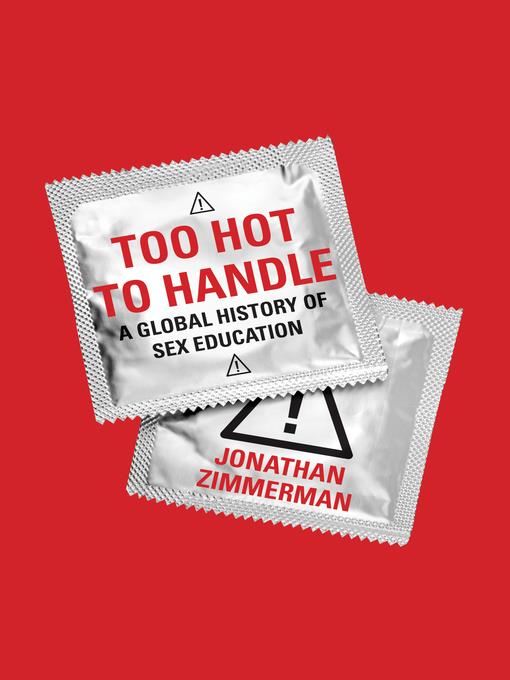
Too Hot to Handle
A Global History of Sex Education
کتاب های مرتبط
- اطلاعات
- نقد و بررسی
- دیدگاه کاربران
نقد و بررسی

December 15, 2014
A chronological narrative of sex education around the world. Using extensive research backed by an impressive notes section, Zimmerman (Innocents Abroad: American Teachers in the American Century, 2009, etc.) untangles the complex history of how and why sex education was first introduced as a specific subject to be taught in schools and its subsequent rise and fall as a teachable course over the past 100 years. First proposed in the 1920s as an attempt to stem prostitution and venereal disease, sex education in Western schools used "models and metaphors from the animal world" to "communicate the 'facts of life' while simultaneously discouraging human sexual activity outside of marriage." Globally, however, this taboo subject was rejected by those with Catholic backgrounds and those who felt such a personal subject could be taught only within the family. Over time, the inflexibility of various nations receded, allowing students to receive sex education worldwide, although it was often disguised under "new euphemisms: social hygiene, human relations, character education, marriage and family education, or-most commonly-family life education." Zimmerman elaborates on the push and pull of legislators, parents, religious leaders and students; most wanted basic sexual information to be disseminated without actually encouraging sexual activity or promiscuity. The narrative covers the time frame of the sexual revolution of the 1960s and '70s, the discovery of HIV/AIDS, which prompted renewed efforts to explain the sexual activities of humans, and the problems teachers faced as they juggled the need to teach this controversial subject with their own lack of knowledge and the desires of parents who did or did not want their children to learn the details from someone outside the family. Zimmerman's coverage includes the tactics of the United States, European countries, New Zealand, China and Japan, as they've all tried to maintain a delicate balance of providing just enough information without revealing too much. An informative, occasionally dry account of the attempts to educate the world about human sexual relations.
COPYRIGHT(2014) Kirkus Reviews, ALL RIGHTS RESERVED.

February 15, 2015
How easy it is to overlook sex education. After all, for most of us in the United States, instruction in the topic meant just a few weeks during our four years in high school. The mass media, as Zimmerman (history of education, New York Univ.; Small Wonder) points out, has always had a "much more profound effect on children's sexuality in the twentieth century than any set of formal educational institutions." Yet this relatively obscure corner of the curriculum still managed to provoke armies of opposition wherever it appeared. Zimmerman demonstrates how and why sex education remains one of the most controversial educational issues. While early proponents saw it primarily as a means to reduce high rates of venereal disease, later advocates urged a more holistic approach that would emphasize sexual enjoyment and encourage healthy relationships. But sex education encountered resistance from parents who considered the subject best taught at home. Caught in the middle, of course, were the teachers. Partly because of the constant threat of retaliation, sex educators practiced self-censorship. According to one fairly recent poll cited by Zimmerman, one-third of U.S. teachers said that their schools were "nervous" about community reaction to sex education, while one-fifth reported omitting references to certain topics in class. VERDICT Zimmerman's well-researched book is sprinkled with fascinating capsule biographies of long-forgotten historical figures. While the author is not the first historian to write about sex education, his transnational perspective yields a number of valuable insights. Recommended to both lay readers and scholars interested in educational history.--Seth Kershner, Northwestern Connecticut Community Coll. Lib., Winsted
Copyright 2015 Library Journal, LLC Used with permission.

























دیدگاه کاربران